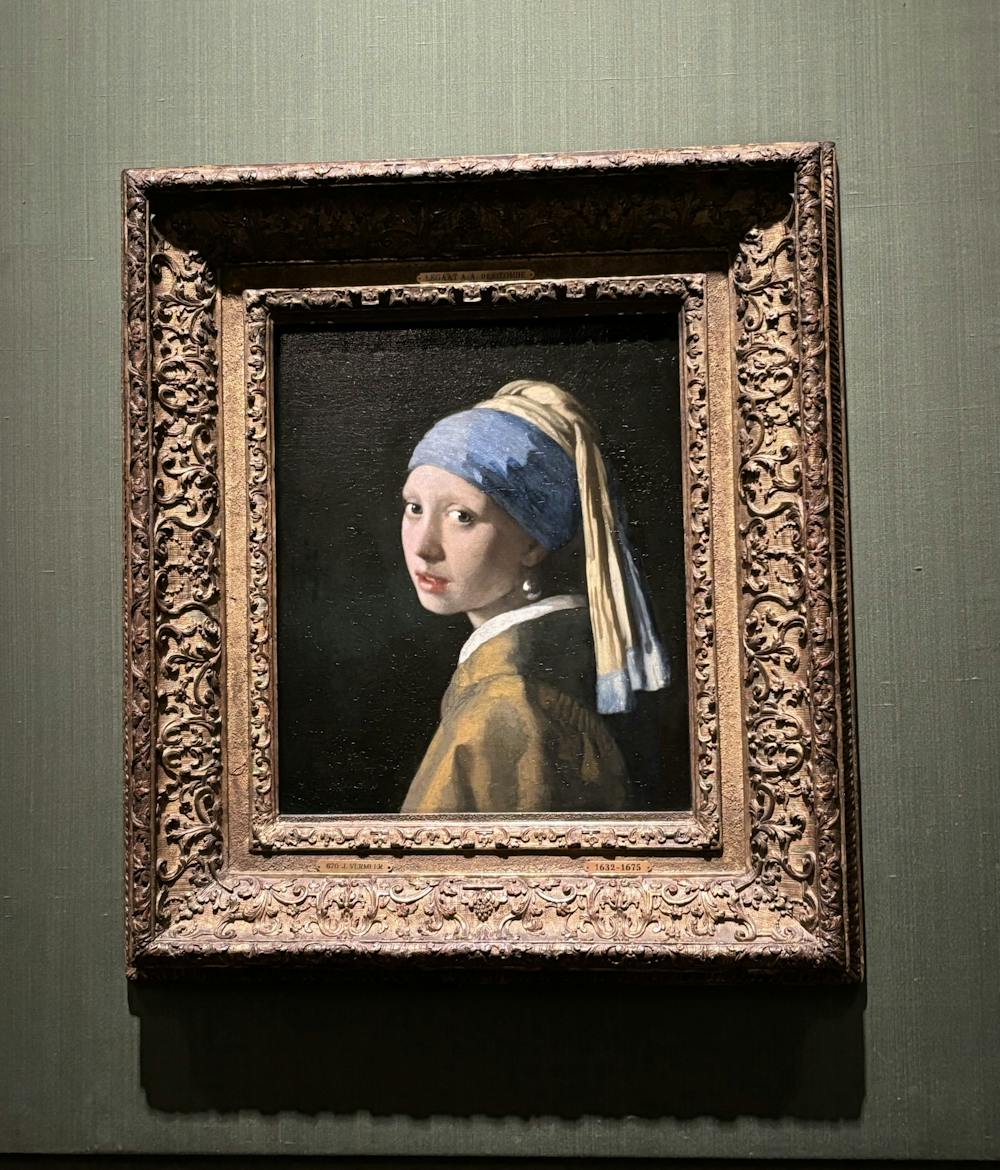Part of the beauty of attending a program like the Miami University Dolibois European Center (MUDEC) is the resources United States universities often have. For MUDEC, these resources are transported over to Europe. In particular, “Discovery Tours” are alumni-funded, fully planned weekend trips that MUDEC’s student activities coordinator arranges.
Claiming a spot on your preferred trip is the trickiest part of the experience, but once you’re in, you won’t find yourself paying for more than a meal or two. For my second weekend abroad, I was lucky enough to go on a Discovery Tour to The Hague, a city in the Netherlands.
Traveling with Miami for what almost felt like a glorified field trip taught me a lot of things – both good and bad. I learned that The Hague has some of the best vintage shops in Europe that I’ve seen so far. I also learned that, while a pre-planned trip is convenient, traveling on my own schedule and timeline is much preferred.
There is one advantage to going on Miami-coordinated trips, and that is the more “educational” aspects of historic cities you wouldn’t think to explore otherwise. I know what you’re thinking: I’m putting too much emphasis on the “study” part of “study abroad.”
However, it’s not like I’m sitting in the middle of the Netherlands reading a textbook. Being able to attend museums like The Mauritshuis (with its admission, like the rest of the trip, being fully paid for) and seeing iconic paintings like “The Girl With The Pearl Earring” in front of my eyes was really cool – and I’m not an art history buff.
Seeing famous works of art is just the tip of the iceberg when it comes to European history and MUDEC. What I have found most impactful to study are the world wars – World War II in particular. MUDEC offers a class literally called “The World Wars” that I am enrolled in. If you want, your studying of that part of history can start and end there.

The new monument dedicated to General George Patton in Ettelbruck, Luxembourg, that was unveiled at the 80th Commemoration of World War II ceremony.
I wouldn’t recommend that though. Confronting difficult parts of this conflict that were fought on the same paths I walk cannot be done in the U.S. Our home country teaches us a version of World War I and World War II from the perspective of a country that participated, but did not have any fighting on its homefront except for the attack on Pearl Harbor. This is where Europe differs.
While there is nothing wrong with how the U.S. frames this history, facing it firsthand is all the more powerful. One particularly unique opportunity I’ve had as an intern with The Menard Family Center for Democracy was speaking at a weekend-long commemoration of the 80th anniversary of the liberation of Luxembourg. This event honored U.S. General George Patton and his soldiers, all of whom played a large role in liberating the small country from Nazi occupation. It also served as another Discovery Tour for students to attend.
Going into the weekend, I anticipated the trip to be unique. However, it was much more impactful than I expected – not just because of the professional opportunities it held – but because of how connected I felt to a historical event that happened long before I was born.
The town of Ettelbruck, Luxembourg, about an hour north of Differdange, is incredibly rich in World War II history. I got to tour three different museums with wartime artifacts, most of which came directly from Luxembourg. Even more impressive were the stories the tour guides shared directly from their parents or grandparents who passed down their lived experiences.
In the U.S. it’s easy to forget the impact of the war, and at times it can be lost in history. Luxembourg is quite the contrast in this regard; the country was occupied by German powers for four years and the impact is on home soil, not far away in history. It is a mission of the country to never forget, which was the intention of the anniversary event.
Enjoy what you're reading?
Signup for our newsletter

A preserved tank outside of the General George Patton museum in Ettelbruck, Luxembourg.
I won’t lie, it was jarring at first to see how the horrors of World War II are preserved so realistically and intensely. But, as difficult as it may be to face, doing so for your own personal lesson is more impactful than the initial hesitation the experience may bring.
The point of all of this is that history will surround you in Europe. If you’re considering studying abroad or have plans to, don’t let it just be a time to jetset and party. Go to museums. Ask questions. Immerse yourself in a new culture and a wealth of knowledge you can’t get anywhere else.
You’ll be a better person for it, and learning the history of the country and continent you reside in makes the experience that much more impactful.
Raquel is a junior political science and journalism student. She has written and now edits for The Student since her first year in the Campus & Community section and especially enjoys political reporting. This semester, she will be writing several columns about her time in Luxembourg.




